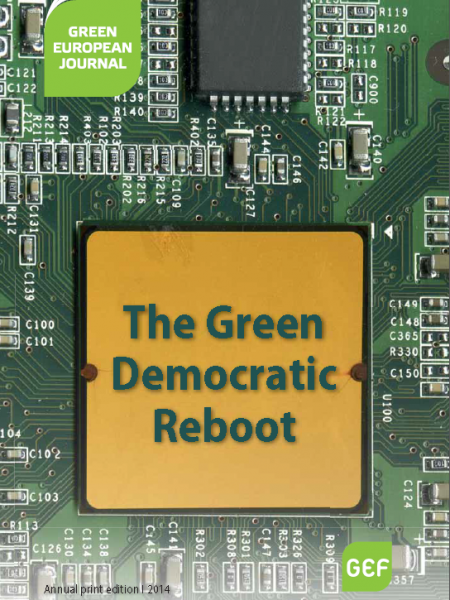The EU Fifth Project is creating a network of community-based movements as part of a broader transition, starting at the local level and gaining international momentum, with the aim of building a sustainable future.
Communities and Leaders Must Join in Common Cause
“We need alternatives to GDP growth as the goal of public policy and we need alternatives to work and wealth accumulation as the driving forces in our lives. A genuine transition in the way we live is the only true path to sustainability. But it must be accompanied by a transition in the way we govern. This is Europe’s fifth project.” Olivier De Schutter, UN Special Rapporteur on the Right to Food
As the new political map of Europe takes shape after the European elections, the new Europe faces a pressing challenge – how to build a sustainable future for its 500 million inhabitants.
While the UK has returned to economic growth, the picture elsewhere in Europe is less positive. According to recent statistics, more than 26 million people in the European Union are unemployed, almost 11 per cent of the active working population. Damningly, almost 125 million people (25 per cent of the population) are at risk of poverty. The problem is particularly acute for young people.
Europe also faces a major ecological challenge. Each person in the EU consumes on average 16 tonnes of material annually, of which six are wasted, with half going to landfill. The European Commission has warned that sources of minerals, metals and energy, as well as stocks of fish, water, timber, fertile soils and clean air, are increasingly under pressure as a result of over consumption.
To address the challenge, the EU Fifth Project was recently launched building on the impressive growth of social movements that are working towards the transition to sustainable societies. With more than 2,000 community-based initiatives on climate change and sustainability in Europe, a number which is growing rapidly, the Fifth Project aims to harness the creative ideas of community based movements to achieve the social, economic and ecological transition they have been calling for.
The EU Fifth Project aims to harness the creative ideas of community based movements to achieve the social, economic and ecological transition they have been calling for.
The Sustainable Growth of Community Based Projects
This recent explosion of community-based initiatives has also prompted the establishment of a new European network, Ecolise, which aims to support exchange and co-operation between initiatives, and to promote a more supportive environment for the emergence of new initiatives in communities across Europe. The Ecolise network brings together a range of partners from across Europe, including the Transition Network and Transition hubs from across Europe, the Global Ecovillage Network, Permaculture UK, Gaia Education, ICLEI (local governments for sustainability) and others.
Despite the EU’s advances towards sustainable societies – whether in the social arena through social security schemes, in the ecological sense through greater resource efficiency and recycling of waste, or in economic terms with increasing support for social enterprises – most social movements consider the EU to be a remote and abstract concept, an organisation not well connected to local communities.
There is certainly a divide between the two constituencies, living in mutual ignorance – grass roots social movements on one side and the Brussels-based decision makers on the other hand. The Fifth Project is proposing to bridge this gap, while Ecolise is paving the way towards a structured engagement in order to bring about real change.
We all know of the need for urgent action on climate change and sustainability. Time is a key issue in terms of reducing carbon emissions, stopping the loss of biodiversity or protecting other finite resources. This is why both Ecolise and the Fifth Project are pushing for a more supportive policy environment, to encourage policymakers to bring forward policies and programmes that support community-based action.
The world doesn’t change one person at a time. It changes as networks of relationships form among people who discover they share a common cause and vision.
This moment in Europe’s history requires a new social contract between its citizens and its leaders. Teaming-up the transition town movements, the eco-municipalities, the eco-villages and other grass roots initiatives with economic and political leaders to develop new ways of producing and consuming, moving and eating has to be the answer. Governments can’t do it alone, neither can communities. But recognising the contribution that each side can make, and fostering a joined-up approach, may just be enough, just in time.
This article was originally published online by The Scotsman, 29 May 2014.

